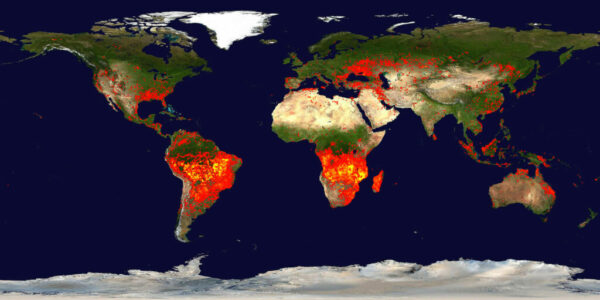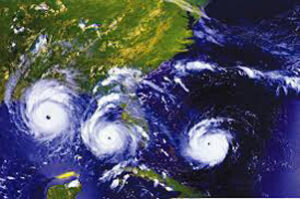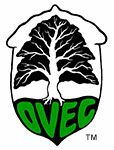- Like
- Digg
- Del
- Tumblr
- VKontakte
- Buffer
- Love This
- Odnoklassniki
- Meneame
- Blogger
- Amazon
- Yahoo Mail
- Gmail
- AOL
- Newsvine
- HackerNews
- Evernote
- MySpace
- Mail.ru
- Viadeo
- Line
- Comments
- Yummly
- SMS
- Viber
- Telegram
- Subscribe
- Skype
- Facebook Messenger
- Kakao
- LiveJournal
- Yammer
- Edgar
- Fintel
- Mix
- Instapaper
- Copy Link

Some say the world will end in fire,
Some say in ice.
From what I’ve tasted of desire
I hold with those who favor fire.
But if it had to perish twice,
I think I know enough of hate
To say that for destruction ice
Is also great
And would suffice.
When Robert Frost published his poem, “Fire and Ice” in 1920, he likely did not know how
prescient he was. We know: the world will end in the heat of fire. We have already seen it or
heard of it: California, Greece, Australia all have suffered recent and devastating fires.
In addition to wildfire, David Wallace-Wells in his book, ‘The Uninhabitable Earth: Life After
Warming,’ discusses several other ‘elements of chaos’ resultant of global warming, including:
heat, hunger, drowning, ‘disasters no longer natural’ (hurricanes), freshwater drain, dying
oceans, un-breathable air, plagues of warming (disease), economic collapse, and climate conflict
(temperature and violence).
His is — rightly so — an alarmist view; he believes that the time to ‘freak out’ about climate chaos
is right now, although the better time would have been when James Hansen pled before
Congress about action on climate change some 30 years ago…or when Al Gore’s ‘An
Inconvenient Truth’ was published less than 20 years ago. At that time, greenhouse gas
emissions would have had to be cut by only 3%; today, the critical rate is 10%. We are not
progressing.
Wallace-Wells’ book starts with the words, “It is worse, much worse, than you think,” and his
book makes the case that we have a mere thirty years before the suffering of our species will be
experienced by everyone on earth, not only, like now, in countries with low GDP which have
contributed least to spewing carbon into the air but suffer the most from what wealthy countries
continue to do, which is to increase emissions. Just think — twice as much coal is being burned
today than in 2000, mostly because of China’s thirst for cheap energy. It is an example of ironic
economics that China leads both in promoting the use of renewable energy and in the use of
fossil fuel energy production.
In 2016, the Paris climate accords set a 2C (3.6F) increase in temperature as an upper limit to
help mitigate the warming of our planet, yet in 2017 alone, emissions grew by 1.4%. We are well
on our way to obliterating the Paris goal. If carbon emissions stopped right now, this instant, the
planet would still be on track to warm an additional 1/2C. If the rest of the world followed China’s
current rate of carbon pollution, by the year 2100, a date often referenced in the book, earth
would be warmer by 5C!
Currently, in the USA, there are 354 major cities with average summer temperatures of 95F or
higher; by 2050 (another target date often noted by Wallace-Wells), there may be as many as
970. Air conditioners and fans currently account for about 10% of global energy consumption to
keep our bodies at comfortable temperatures. It is estimated that by 2030 there will be an
additional 700 million more units running across the globe. Keeping the body within a
comfortably narrow temperature range has been crucial for the evolution of Homo sapiens and
other species on earth. Would we have evolved in a hotter earth? Will we survive a hotter
climate made hotter by running so many air conditioners?
What are we going to do about this? Wallace-Wells notes that carbon capture and storage is a
proven way to reverse-engineer emissions, yet it is very expensive. It is estimated at the
simplest carbon capture machine would cost about $30,000 — but to effectively offset emissions,
about one billion machines would be needed — at a cost of more than the total wealth of our
planet. Better to change our thinking entirely about fossil fuels and use our political power to
vote conventional energy out and anything green (except perhaps nuclear) in. Force
accountability from those who profit from carbon pollution, both corporations — and countries.
This change will, of course, influence everything about how we live and do business and grow
things. Given our species’ stance (a big yawn, really) so far in the climate chaos that surrounds
us, it may be insurmountably difficult to accomplish. However, nothing less is required before we
fortunates are forced to live the horrors we comfortably see in the daily news reports from the
comfort of our living rooms.
This is not a book to read and weep over, or, to not only weep over. Rather, it is a chamade for
everyone to take as seriously as if our very lives depended on it. Because they do.









